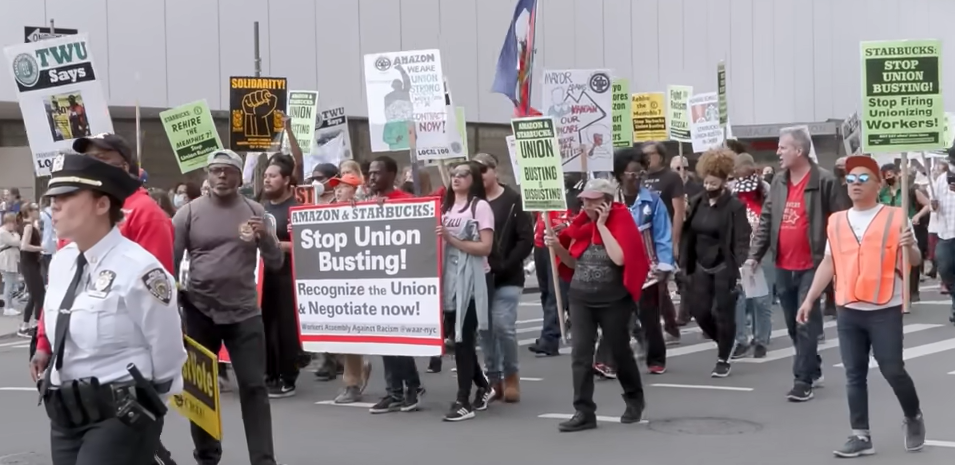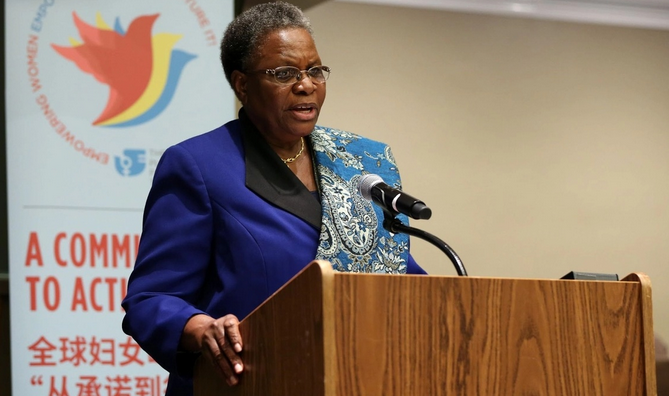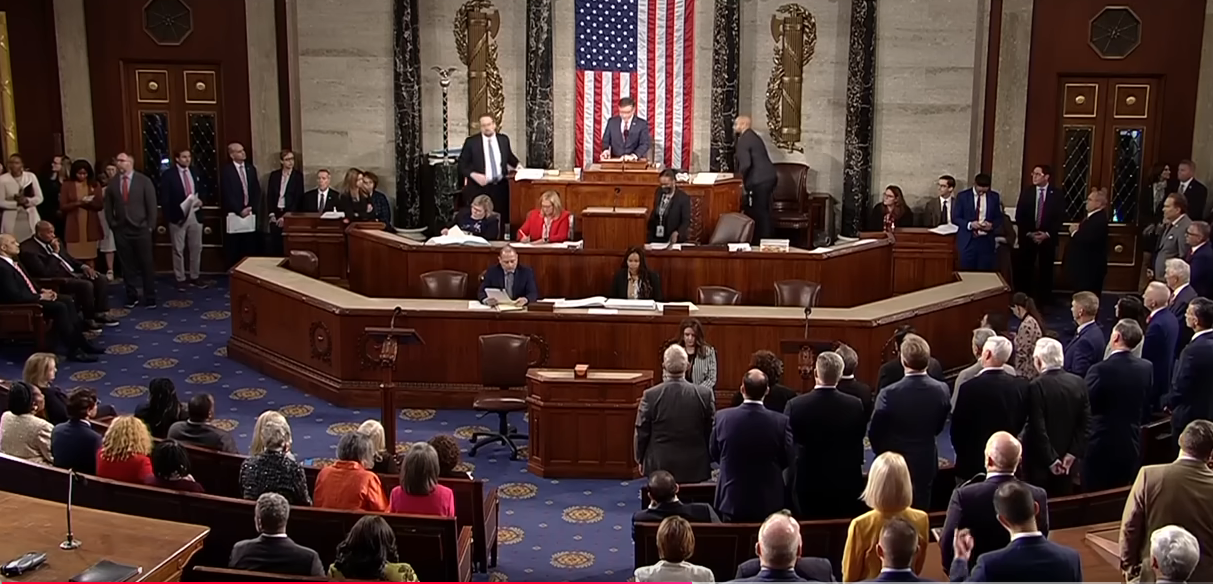Photos: YouTube Screenshots
The state of labor this year is so fraught, so weighted with issues and problems, that a single day of homage and reflection doesn’t seem enough. It’s as if a year or more is needed to engage the issues, challenges, and possibilities facing American workers today. Consider the following:

Some 37.9 million Americans, about 11.6 percent of the population, live in poverty. But as sociologist Matthew Desmond has noted, about one in three Americans lives in a household with an income of $55,000 per year or less, an income barely enough to cover the rising costs of rent, health care, and food. Some 10.2 percent of American households (13.5 million households) have been food insecure, lacking access at one time or another to an adequately nutritious diet.
At the same time, organizations that best represent the material interests of working people – labor unions – are at an all-time low in membership (10.1 percent), down from 20.1 percent of working adults in 1983, when comparable data was first available. As studies have shown, unionized workers tend to make wages higher than those of non-union workers, and they tend to be less vulnerable to such corporate labor strategies as outsourcing.
But outdated labor laws and weak enforcement continue to hamper the efforts of thousands of workers seeking to organize unions and achieve fair collective bargaining agreements. Despite some important successes (e.g. the wage raises and safety provisions recently won by UPS workers), major employers like Starbucks and Amazon stonewall negotiations, and union busting remains a lucrative enterprise: a highly effective instrument deployed by many companies.
To complicate matters, AI has entered the workplace, threatening jobs in call centers and other places of employment – and remaining a contentious issue in ongoing strikes by screenwriters and actors.

Recent polling indicates that public support for unions (71 percent) is the highest it’s been since 1965. But it’s one thing to indicate approval on an opinion poll; it’s another to express that support in concrete ways.
One way, of course, is to continue educating oneself about labor issues and the way they’re played out in public discourse. With the 2024 election 14 months away, for example, one can scrutinize the words and actions of candidates who profess to care about working families.
Consider, for example, South Carolina Senator Tim Scott’s declaration, at the recent Republican presidential debate, that “the only way we change education in this nation, is to break the backs of the teachers unions.” What does it mean to represent unions in this way – to erase any consideration of teachers as both parents and as members of a community?
And what kinds of legislation, what kinds of policies, best represent the interests of workers – like those at Starbucks and Amazon – who seek to organize and achieve fair contracts?
Consider the Protecting the Right to Organize (PRO) Act, which, among other things, would make it illegal for employers to force workers to attend anti-union, captive audience meetings. The PRO Act was passed by Congress in 2021, but it has since languished in the Senate. What will it take for basic legislation like this to become law?
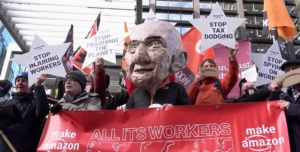
Behind these questions lies the fundamental issue of accountability. How to hold candidates and public officials accountable for stances and actions that help or hinder workers? How to hold ourselves accountable as citizens, willing to take the extra steps to look beyond campaign rhetoric as educated and discerning voters?
And how to look around our own neighborhoods – informing ourselves of local labor issues, respecting (even joining) picket lines, and supporting workers’ rights to organize whenever possible?
The need for accountability applies to unions and union members as well. In my home city of Los Angeles, where screenwriters and actors continue their strikes, 32,000 low-wage hotel workers have also been on strike for two months. In a city where exorbitant rents have made it impossible for housekeepers or hotel bartenders to live where they work, the union is demanding not only better wages, but, among other things, a 7 percent surcharge on rooms to help fund affordable housing for workers.
Strongly contested by the hotel owners, this latter demand nevertheless shows a unique kind of accountability: not only a union’s investment in fair wages, working conditions, and benefits for workers, but also an investment in the housing stock and well-being of entire communities.
This Labor Day will be marked by requisite speeches, marches, and other forms of observance. And it should. But may it also mark a deepening, an intensifying, of the ongoing struggle for workers’ rights and labor justice.
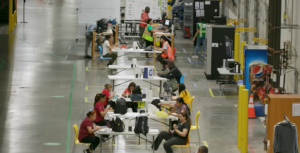
Andrew Moss, syndicated by PeaceVoice, writes on labor and immigration from Los Angeles. He is an emeritus professor (Nonviolence Studies, English) from the California State University.
